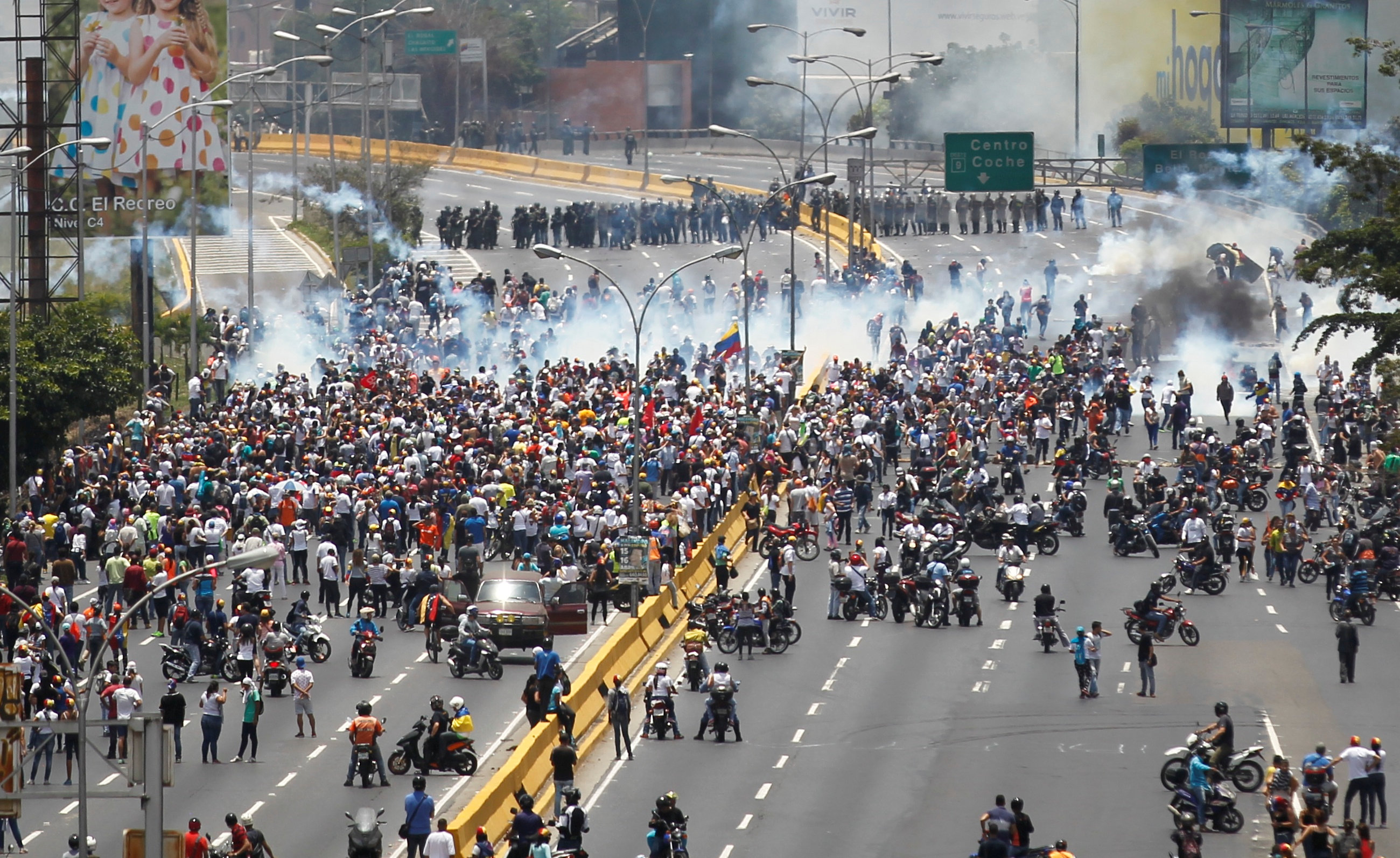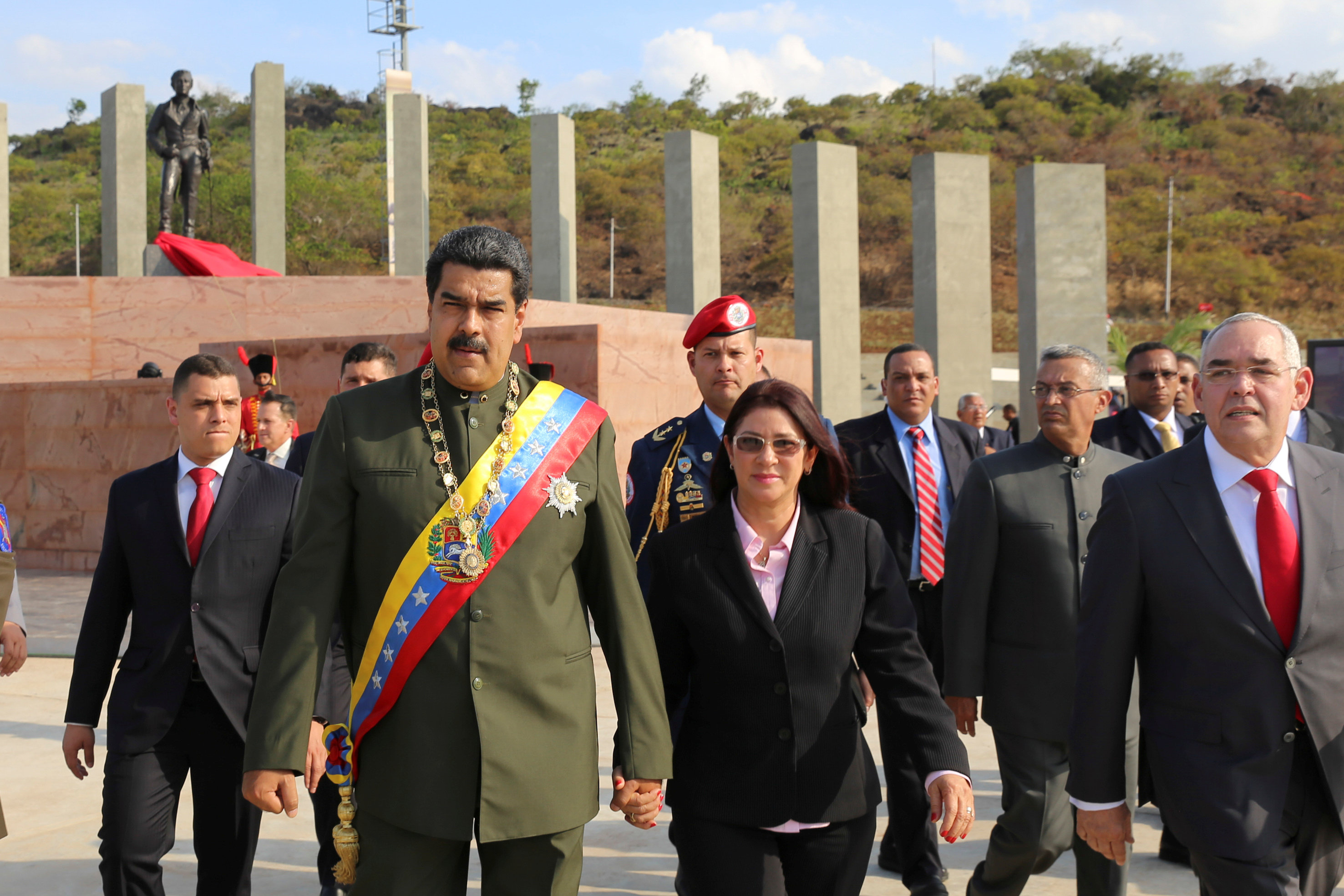
By Brian Ellsworth and Diego Oré
CARACAS (Reuters) – Venezuela’s opposition says it will stage the “mother of all marches” on Wednesday, accusing President Nicolas Maduro of resorting to dictatorial measures to quash popular outrage over a deepening economic crisis.
In the culmination of a fortnight of violent demonstrations that killed five people, marchers around the country will demand the government present a timeline for delayed elections, halt a security crackdown on protests, and respect the autonomy of the opposition-led legislature.
Maduro, who says recent protests have been little more than opposition efforts to foment violence and topple his government, has called on sympathizers of the ruling Socialist Party to hold a competing march in Caracas.
“This is a government in its terminal phase,” two-time presidential candidate Henrique Capriles told Reuters on Tuesday evening.
“This is going to escalate … and force Maduro, and his regime, to hold free and democratic elections.”
Venezuelans have for years been furious about a collapsing economy in which basic food products are a struggle to obtain and triple-digit inflation is steadily eroding consumer spending power.
But a Supreme Court decision in March to assume the powers of the opposition-led Congress sparked a wave of protests that have not ebbed, even though the court has partly reversed the measure in the face of international condemnation.
Further spurring outrage was a decision by the national comptroller’s office earlier this month to disqualify Capriles from holding office for 15 years, dashing his hopes for the presidency.
The elections council, which is sympathetic to the government, has delayed votes for state governors which were supposed to take place last year. The opposition says this is because the ruling Socialist Party is likely to fare poorly in such a vote.
“QUICK SOLUTION”
Eleven Latin American countries issued a joint statement this week calling on authorities to set a time frame for elections to “allow for a quick solution to the crisis that Venezuela is living through.”
Marches have repeatedly ended in clashes between demonstrators and security forces, with rock-throwing youths squaring off against tear-gas-lobbing security forces in confused melees that drag on well into the evening.
The opposition will congregate at more than two dozen meeting points around Caracas and attempt to converge on the office of the state ombudsman, a guarantor of human rights.
Previous efforts to march there have been blocked by the National Guard, resulting in clashes. As has become common in recent weeks on protest days, Venezuelan authorities will close 27 metro stations and likely set up checkpoints to slow entry to the city.
Socialist Party officials dismiss the opposition marches as efforts to destabilize the government, pointing to protester barricades and vandalism, and have called on supporters to rally around Maduro.
“The great Chavista mobilization toward Caracas has begun,” wrote Socialist Party Vice President Diosdado Cabello on Twitter, referring to late socialist leader Hugo Chavez.
“Let’s all go conquer the peace, defend the fatherland, the constitution, the revolution.”
But pro-government marches no longer have the fervor or numbers of those of Maduro’s predecessor. Opposition leaders also accuse the government of infiltrating marches with violent protesters as a way of discrediting them.
(Reporting by Brian Ellsworth; Editing by Girish Gupta, Christian Plumb and Lisa Shumaker)












